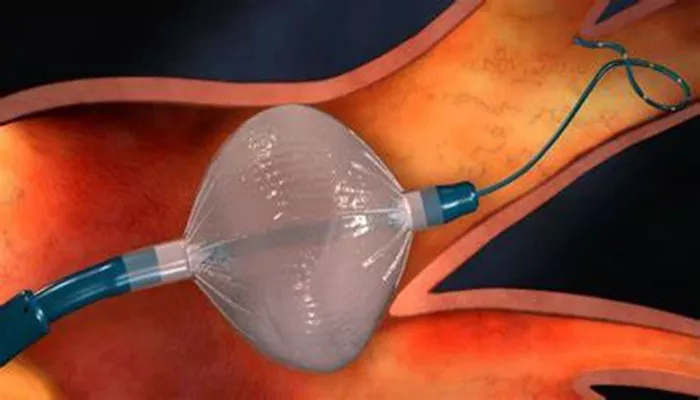Atrial fibrillation (AF) is a common cardiac arrhythmia characterized by rapid and irregular beating of the atria. It can lead to various complications, including stroke and heart failure. For patients who do not respond to medication or who experience significant symptoms, catheter ablation has emerged as a prominent treatment option. This procedure aims to destroy the areas of heart tissue that contribute to the erratic electrical signals causing AF. Understanding how long the effects of atrial fibrillation ablation last is crucial for both patients and healthcare providers, as it influences treatment decisions and patient expectations.
Ablation procedures can be categorized into different types, with pulmonary vein isolation (PVI) being the most common.
During PVI, catheters are inserted into the heart through blood vessels, typically in the groin, and energy is applied to create scar tissue that blocks abnormal electrical signals. The duration of effectiveness of this procedure can vary based on several factors, including the type of AF, duration of episodes prior to the procedure, and individual patient characteristics.
This article delves into how long atrial fibrillation ablation can last, examining both immediate and long-term outcomes following the procedure. We will explore factors that influence these outcomes, the recurrence rates of AF after ablation, and strategies for managing any potential recurrences.
How Long Does Atrial Fibrillation Ablation Last?
Immediate Effects
The immediate effects of atrial fibrillation ablation are typically assessed in terms of procedural success and recovery time.
Most catheter ablation procedures last between 3 to 6 hours, depending on their complexity. Following the procedure, patients usually spend a few hours in recovery before being monitored for any complications. Many patients can return home the same day or after a short hospital stay.
see also: Can Stress Cause An Arrhythmia?
Short-term Outcomes
In the short term—usually within the first few months after ablation—many patients experience significant relief from AF symptoms. Studies indicate that approximately 70% to 80% of patients remain free from AF for at least one year after undergoing catheter ablation. However, recurrence is not uncommon; some studies report that up to 50% of patients may experience a return of AF within this timeframe.
The likelihood of recurrence is influenced by several factors:
Type of Atrial Fibrillation: Patients with paroxysmal AF (intermittent episodes) tend to have better outcomes compared to those with persistent AF (longer-lasting episodes).
Duration of Episodes: Patients whose AF episodes lasted less than 24 hours before ablation generally have lower recurrence rates compared to those with longer episodes.
Underlying Heart Conditions: Other cardiac issues, such as heart failure or hypertension, can complicate outcomes.
Long-term Outcomes
Long-term outcomes are crucial for understanding how long the benefits of atrial fibrillation ablation last. Research indicates that about 60% to 70% of patients remain free from significant arrhythmia five years post-ablation. However, this rate can vary widely based on individual patient factors and procedural techniques used.
Recurrence Rates Over Time
Recurrence rates tend to be highest in the first year after ablation but may stabilize thereafter. A study showed that while many patients experience a recurrence within the first year, subsequent recurrences often decrease in frequency and severity over time.
For example:
First Year: Approximately 30% to 50% may experience AF recurrence.
Two to Five Years: The risk decreases significantly; studies suggest that only about 15% to 25% will have recurrent symptoms during this period.
Factors Influencing Long-term Success
Several factors play a critical role in determining how long the effects of atrial fibrillation ablation last:
Patient Age: Younger patients often have better outcomes compared to older individuals.
Comorbidities: The presence of other medical conditions can impact recovery and recurrence rates.
Operator Experience: The skill and experience of the electrophysiologist performing the procedure can significantly influence outcomes.
Type of Ablation Technique: Newer techniques such as high-power short-duration (HPSD) ablation have shown promise in reducing procedure times without compromising safety or efficacy.
Managing Recurrences
Despite successful initial outcomes, some patients may experience a return of AF symptoms. Management strategies include:
Medications: Antiarrhythmic drugs may be prescribed to help maintain normal rhythm.
Repeat Ablation: In cases where AF recurs significantly affecting quality of life, repeat ablation procedures may be considered.
Lifestyle Modifications: Patients are often encouraged to adopt heart-healthy lifestyle changes such as weight management, regular exercise, and dietary adjustments.
Conclusion
Atrial fibrillation ablation offers significant benefits for many patients suffering from this common arrhythmia. While immediate relief from symptoms is often achieved, understanding how long these benefits last is essential for setting realistic expectations. With proper patient selection and advancements in technique, many individuals can enjoy prolonged periods without significant arrhythmia following their procedure.
Related topics:
- Can Arrhythmia Cause Heart Attack?
- Can I Exercise with Sinus Tachycardia
- How Common Is Arrhythmia in The Us

